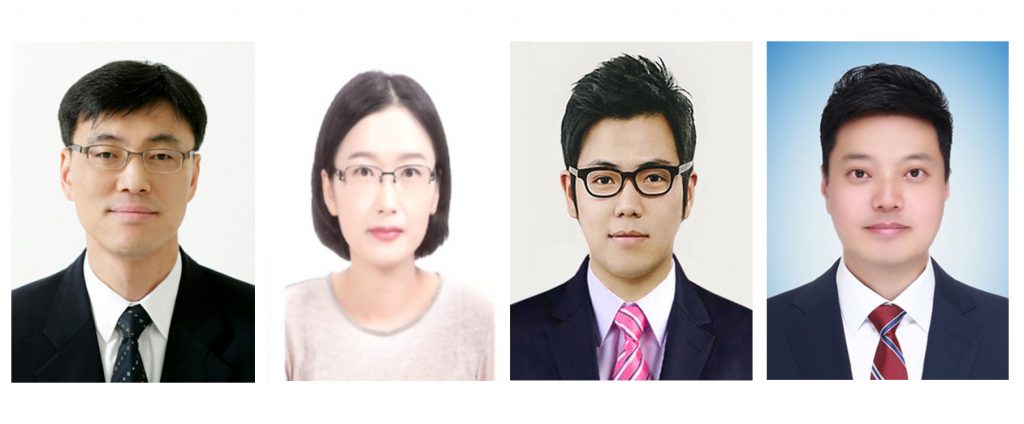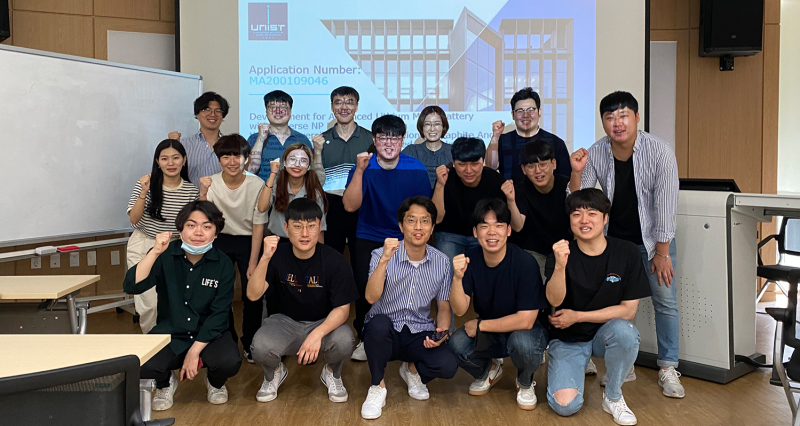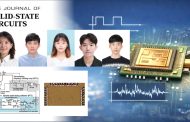A new research initiative to accelerate the development of advanced lithium-metal batteries that will double the energy density of the existing EV batteries is in full swing. This research collaboration, undertaken among young and middle-aged researchers is expected to provide a significant opportunity for the growth of battery technology market.
UNIST, in collaboration with Pukyong National University and Chosun University, has embarked on a joint research project to develop the next-generation of batteries for electric vehicles (EVs). This project was selected for the first-half 2020 Samsung Research Funding Program for Future Technologies in early June 2020.
The joint research team, consisting of Professor Kyeong-Min Jeong (School of Energy and Chemical Engineering, UNIST), Professor Nam-Soon Choi (School of Energy and Chemical Engineering, UNIST), Professor Pilgun Oh (Department of Graphic Arts Information Engineering, PKNU), and Professor Yoonkook Son (Department of Electrical Engineering, Chosun University), has began full-scale research activities since August this year, and thus has been given KRW 1 billion in funding to design and develop electrode materials for lithium-metal batteries.

From left are Professors Kyeong-Min Jeong (UNIST), Nam-Soon Choi (UNIST), Pilgun Oh (PKNU), and Yoonkook Son (Chosun University) l Image Credit: Professor Kyeong-Min Jeong
Lithium-metal batteries are next generation energy storage devices with high energy density, and thus have attracted attention in research and development as the next-generation energy storage device for EVs, especially when compared to the existing LIBs. The research team aims to develop lithium-metal batteries that can be mass produced, thereby realizing large-scale EV batteries that have high energy density and are lightweight.
The research team plans to conduct research throughout the whole process chain for production of lithium-metal batteries, from developing new commercializable materials for lithium-metal batteries to the design of catalytic electrodes and electrolytes. Each of the team members are experts in their respective fields who have research experience at UNIST.
Both Professor Pilgun Oh (PKNU) and Professor Yoonkook So (Chosun University) obtained a doctorate degrees at UNIST. They have gained relevant, professional experience and knowledge of a particular industry, and thus have been appointed as professors at PKNU and Chosun University, respectively.
“All these would not have been possible without UNIST’s talent cultivation system and its unique research environment, optimized for secondary battery research,” says Professor Jeong. “Through this collaboration, we aim to mass-produce state-of-the-art EV batteries that have high energy density and are lightweight, while using the current battery technologies and manufacturing techniques.” He adds, “We hope to achieve a research breakthrough that could take battery technology to the next level.”
UNIST has recently been selected as a representative university that offers battery-related professional manpower training programs, one of the Industry Technology Innovation Projects by the Ministry of Trade, Industry and Energy (MOTIE). Accordingly, UNIST will cultivate experts for the development of core materials for secondary battery over the next five years.
Meanwhile, Samsung Research Funding Program for Future Technologies is a program that has been promoted by the Samsung group in support of the cultivation of the core basic science technologies and for the three major areas of ▲ Basic Science, ▲ Materials Technologies, and ▲ Creative ICT. Based on those three major areas, the company selects the awarding of promising research projects on three separate occasions each year. A total of 28 projects have been selected for the first half of this year, including Professor Jeong’s project on next-generation batteries.












